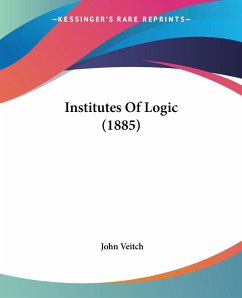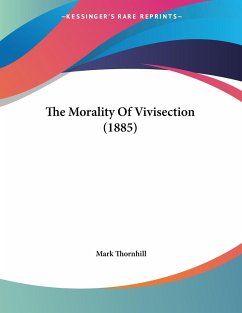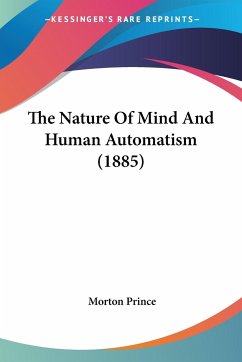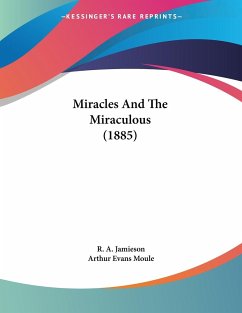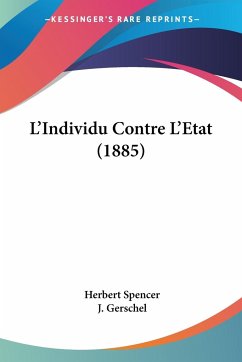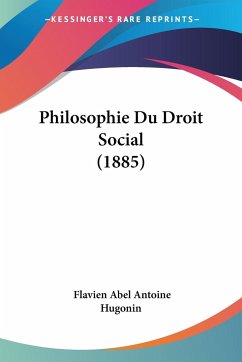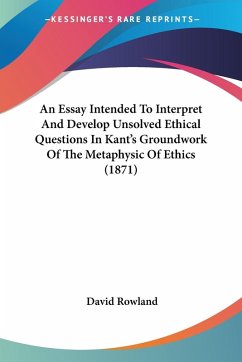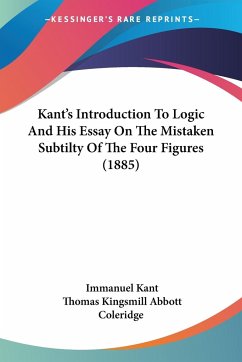
Kant's Introduction To Logic And His Essay On The Mistaken Subtilty Of The Four Figures (1885)
Versandkostenfrei!
Versandfertig in 1-2 Wochen
22,99 €
inkl. MwSt.

PAYBACK Punkte
11 °P sammeln!
Kant's Introduction to Logic and His Essay on the Mistaken Subtilty of the Four Figures is a book written by the renowned philosopher Immanuel Kant in 1885. The book is a collection of two works that delve into the realm of logic and reasoning. The first work, Introduction to Logic, is a comprehensive guide to the principles of logic. Kant explains the different types of judgments and categories of understanding, as well as the rules of inference and the nature of syllogisms. He also discusses the importance of logic in scientific inquiry and how it can be used to distinguish truth from falseh...
Kant's Introduction to Logic and His Essay on the Mistaken Subtilty of the Four Figures is a book written by the renowned philosopher Immanuel Kant in 1885. The book is a collection of two works that delve into the realm of logic and reasoning. The first work, Introduction to Logic, is a comprehensive guide to the principles of logic. Kant explains the different types of judgments and categories of understanding, as well as the rules of inference and the nature of syllogisms. He also discusses the importance of logic in scientific inquiry and how it can be used to distinguish truth from falsehood.The second work, Essay on the Mistaken Subtilty of the Four Figures, is a critique of the traditional Aristotelian logic, specifically the four figures of syllogisms. Kant argues that these figures are based on arbitrary rules and do not accurately reflect the nature of reasoning. He proposes a new system of logic based on the principles of transcendental philosophy, which he believes will provide a more accurate representation of the nature of thought.Overall, Kant's Introduction to Logic and His Essay on the Mistaken Subtilty of the Four Figures is a seminal work in the field of logic and philosophy. It provides a comprehensive overview of the principles of logic and challenges traditional Aristotelian thinking, proposing a new system of logic based on transcendental philosophy. The book is a must-read for anyone interested in the nature of reasoning and the principles of logic.This scarce antiquarian book is a facsimile reprint of the old original and may contain some imperfections such as library marks and notations. Because we believe this work is culturally important, we have made it available as part of our commitment for protecting, preserving, and promoting the world's literature in affordable, high quality, modern editions, that are true to their original work.




